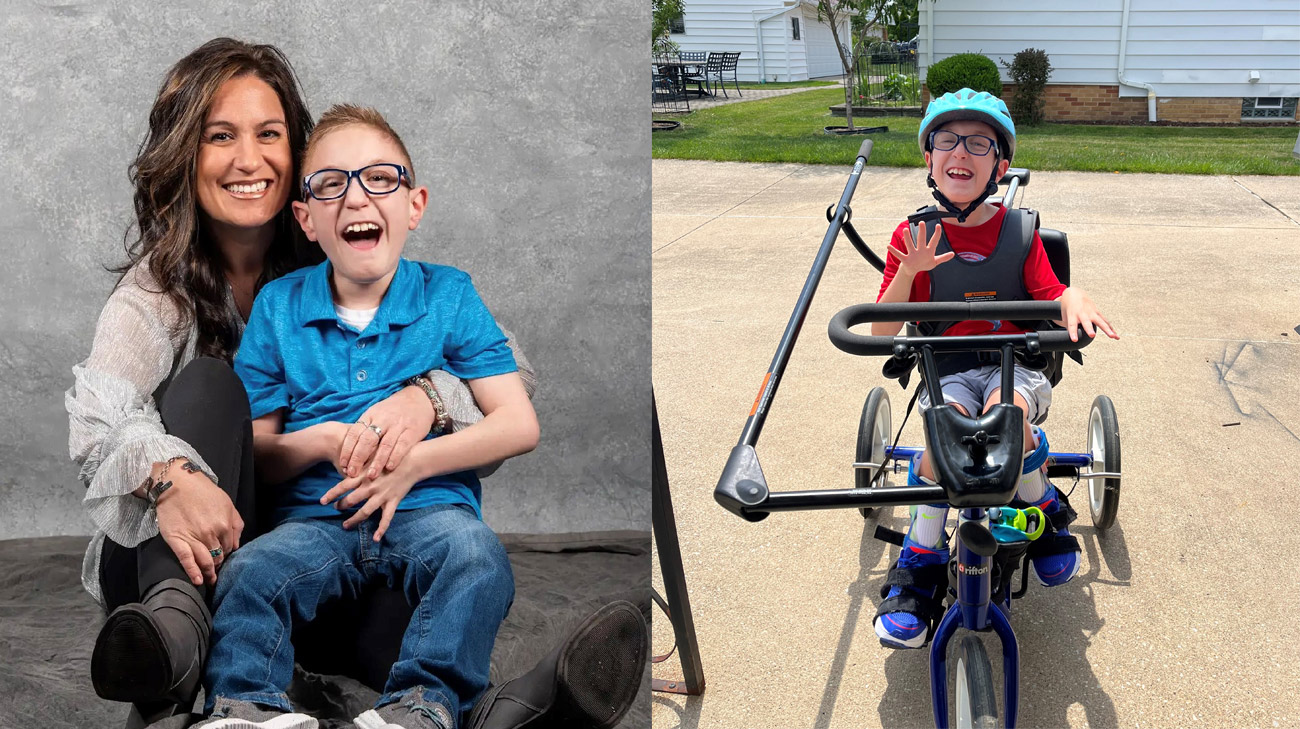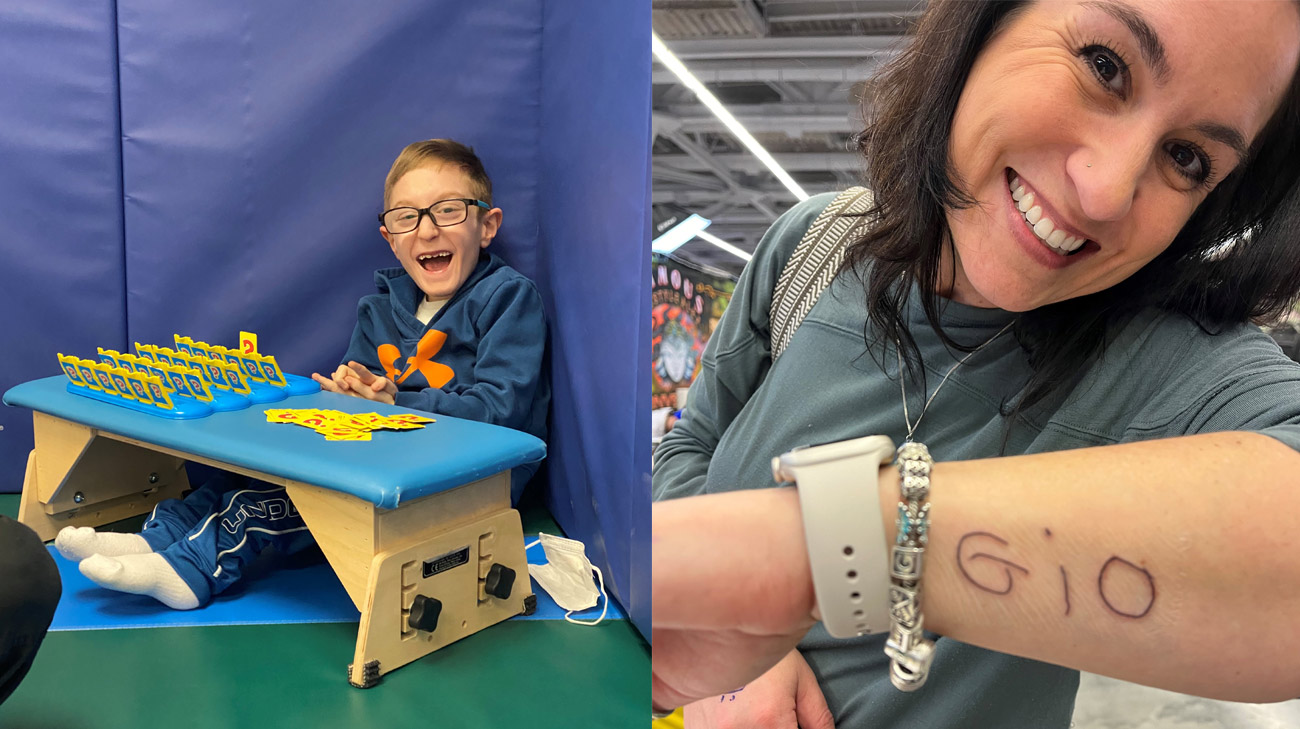
Giovanni Maneri was born 14 weeks premature, weighing just 1 pound, 5.2 ounces. Doctors weren’t sure he’d survive. He spent 118 days in the neonatal intensive care unit (NICU).
“Doctors said Gio might never walk or talk, and that his chances of having cerebral palsy were high. They also said his progression and success would depend on the work we put into him. From that moment, I was like, alright, challenge accepted. I’ll do whatever I need to do to make him succeed,” says Michelle Guzik, Gio’s mom.
Gio began receiving therapy while still in the NICU, starting with a tiny brace applied to his left hand. When he first came home, therapy was provided by Help Me Grow (Ohio Department of Health), but since then, he’s received ongoing therapy services from Cleveland Clinic Children’s.
Emily Orlando, OTR/L, a registered and licensed occupational therapist, first met Gio about four years ago at Cleveland Clinic Children’s Hospital for Rehabilitation Therapy Services Beachwood, a facility that provides occupational, physical and speech therapy on an outpatient basis.
“Gio’s premature birth resulted in damage to parts of his brain that led to a diagnosis of spastic quadriplegic cerebral palsy,” says Emily. “He’s had some sort of therapy his whole life. With babies and little ones, therapy focuses on developmental milestones. As they get older, it shifts to functional skills. Gio and I are working to help him be as independent as he can be in his environment.”
Gio uses a gait trainer, a manual wheelchair and a power wheelchair (primarily at school). Emily has worked with him to improve his upper extremity strength (his left arm is much stronger than his right) and visual motor skills so he can propel the manual wheelchair on his own.
“He’s worked very hard on this and was recently able to move himself from a treatment room to our outside garden, where he practiced his reaching and grasping skills to pick vegetables. He then took those items home to use to cook a meal with his mom,” says Emily.
Gio is very smart, and very social. He’s been coming for therapy so long that he knows everyone who works there, along with the names of their spouses, children and pets. Now that he can maneuver himself around, he stops often to talk with staff members. “We call him the Mayor of Beachwood. He’s a very special soul, everyone just loves him,” says Emily, adding that Gio has become more mobile and confident because of the skills he’s learned in therapy.
His mom is incredibly proud of all his accomplishments, from learning how to swallow and eat, to how to suck from a straw, or hold a pen. He can now feed himself with a fork and spoon using a bowl with a suction cup, though he still needs help with things like soup.

Gio playing a game in therapy (left) Michelle, Gio's mom, showing off her Gio tattoo (right)
“I’m so happy that he learned to write his name. He may not be able to write the entire alphabet, but with technology, he doesn’t need to. We’re not going worry about other writing, instead we will focus on other things he needs to learn,” says Michelle, who has a tattoo of Gio’s name – in his handwriting – on her arm.
Gio has come a long way. From days when the family felt like they lived at the hospital and therapy, he now attends school, where he takes typical classes with his peers. His therapy is ongoing, with weekly one-hour sessions alternating between physical and occupational therapy.
He also has a pen pal – another therapy patient – with whom he communicates by email, which helps them both improve their computer, typing and writing skills.
For the short-term, therapy will continue to focus on functional skills like meal preparation, or what Gio needs to do to grab a snack for himself. As he becomes more independent, therapy may evolve into episodic care, where he’ll come back just for a burst of therapy focused on a specific skill.
“While Gio is still 100 percent dependent on me, I’m so happy with how far he’s come, and I think his future is limitless,” says Michelle. “Moving forward, I want him to be as independent as possible. If he has to be in therapy forever, so be it. He has such a positive, happy attitude. That is all that matters.”
Related Institutes: Cleveland Clinic Children's

